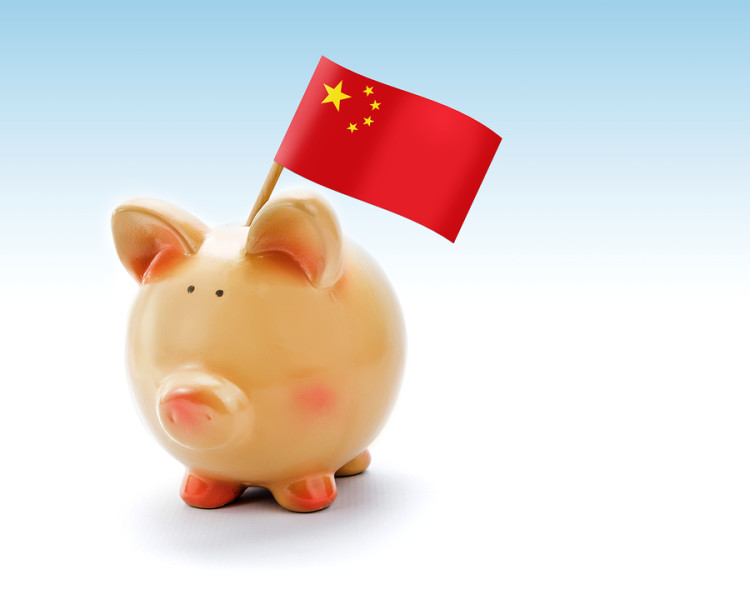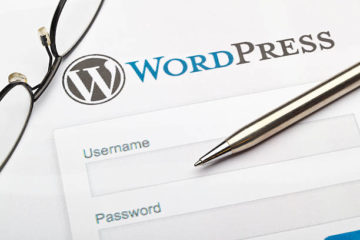China Banks, Oil Giants Put on Notice by Trump’s Sanction Threat

published Sep 5, 2017 5:30:01 PM, by Bloomberg News
(Bloomberg) —
President Donald Trump’s rhetoric about imposing widespread sanctions on China for propping up North Korea’s economy may put pressure on some of its banks and oil companies.
Harsh critics of China’s support for its neighbor have argued that American efforts to stop North Korea’s nuclear weapons program must include tougher sanctions against Chinese state-owned companies. So far, the U.S. focused on small entities such as Bank of Dandong.
But now the bigger players may be at risk after Trump threatened on Twitter to cut off trade with any country doing business with North Korea because of its latest nuclear test. One Republican congressman called out Bank of China Ltd. as a potential sanction target, and Treasury Secretary Steven Mnuchin said punishing specific entities is an option. China is the U.S.’s largest trading partner, with $578.6 billion in two-way trade last year, according to the Office of the U.S. Trade Representative.
“UN must impose oil embargo on N Korea ASAP,” Representative Peter King of New York wrote in a Sept. 3 message on Twitter. “If China or Russia veto, US must sanction any1 doing business with NK, including Bank of China.”
When asked by Fox News about whether the U.S. would impose tougher sanctions against Chinese financial institutions and companies, Mnuchin said, “We’re going to strongly consider everything at this point.”
“If countries want to do business with the United States, they obviously will be working with our allies and others to cut off North Korea economically,” he said.
Chinese banks are especially vulnerable to sanctions because they had $144 billion of assets in the U.S. at the end of December, according to data from the U.S. Federal Reserve. Most of those assets are held by Bank of China and the Industrial and Commercial Bank of China. Beijing-based press officers for the two banks separately declined to comment.
“The household names — Bank of China, all the Chinese banks on the large scale — would be on the target list,” said John Park, director of the Korea Working Group at Harvard University’s John F. Kennedy School of Government.
Bank of China was the first Chinese bank to set up operation in the U.S. It currently has four branches in New York, Los Angeles and Chicago, with $78.5 billion of total assets. It’s a fully licensed bank with services including corporate finance, trade finance and personal finance.
ICBC started its U.S. operation in 2008. Its financial services holding unit offers securities clearing and financing services for corporate clients. This unit had $40 billion of assets by June, according to its semi-annual report.
It also has a full-licensed banking unit offering services including deposits, loans, trade finance, settlement and clearing, cash management and bank cards. It had $2.14 billion of assets as of June 30, according to the report.
China’s oil companies also may be exposed. China is the biggest oil supplier for Kim Jong Un’s regime, providing almost all the estimated 15,000 barrels a day of crude and products reportedly imported by North Korea, according to the U.S. Department of Energy.
Most of those exports are from state-owned China National Petroleum Corp., the nation’s biggest oil producer, said Kim Kyung Sool, a senior research fellow at the Korea Energy Economics Institute. CNPC is the controlling shareholder of PetroChina Co., a Hong Kong-listed company with investors including JPMorgan Chase & Co., Blackrock Inc. and Citigroup Inc.
CNPC and PetroChina don’t have any exploration or production assets in the U.S., but other oil giants — including China Petroleum & Chemical Corp. and Cnooc Ltd. — do. Also, Sinochem Group in 2013 bought a 40 percent stake in Texas oil-shale acreage from Pioneer Natural Resources Co. in a $1.8 billion deal. There’s nothing to indicate that any of the other companies sell to North Korea.
China’s oil companies also buy burgeoning U.S. energy exports, including crude and liquefied natural gas, which the Trump administration has encouraged.
CNPC’s Beijing-based spokesman declined to comment Tuesday. PetroChina, China Petroleum and Cnooc’s Beijing-based spokesmen didn’t immediately reply to requests for comment. Sinochem’s Beijing-based spokesman didn’t answer calls to his office and mobile phone seeking comment.
“Any U.S. sanctions against PetroChina or even its parent CNPC will trigger a tit-for-tat kind of retaliation from China,” said Laban Yu, head of Asia oil and gas equities at Jefferies Group LLC in Hong Kong.
A comprehensive oil embargo would have to be approved by the UN Security Council, which China can veto as a permanent member. The council last month agreed to ban North Korean exports of coal, iron ore, lead ore and seafood.
China called Trump’s threat “unacceptable” and said Sept. 4 it is ready to participate in any Security Council discussions.
“China has always stayed committed to the denuclearization of the Korean Peninsula, upholding peace and stability on the Korean Peninsula and promoting the peaceful settlement of the relevant issue through dialogue and negotiation,” Geng Shuang, a Foreign Ministry spokesman, said.
Others caution that it’s better for the U.S. to cooperate with China President Xi Jinping’s government than to slap it with sanctions. That’s because China could retaliate against U.S. companies doing business there, such as Apple Inc., Boeing Co., Starbucks Corp. and automakers.
Sales in Greater China accounted for about 23 percent of Apple’s revenue last fiscal year, according to data compiled by Bloomberg. Heightened tensions between the two countries could dampen sales of the new iPhone 8, scheduled to debut Sept. 12.
Chinese purchases of Boeing planes accounted for 11 percent of the Chicago-based company’s revenue of $94.6 billion.
“We’ve run our string on bluster,” Max Baucus, former U.S. ambassador to China under President Barack Obama, said on Bloomberg Television. “We have to engage China much, much more than we have in the past.”







No Comment